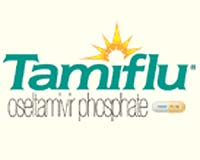| . |  |
. |
Algiers (AFP) Nov 30, 2009 An Algerian health organisation warned Monday that thousands of people in the north African country are unknowingly infected with the AIDS virus as it called for more testing and prevention efforts. "The epidemic of HIV/AIDS is progressing at an alarming rate in Algeria," said Scander Abdelakader Soufi, president of the Association to Fight Sexually Transmissible Diseases and AIDS (AnisS), on the eve of World AIDS Day. "Thousands of people are infected without knowing it," Dr Soufi said, adding that large-scale tests were needed, along with a public information campaign and psychological and socio-economic measures to help the sick. Algeria had 4,084 HIV-positive people at the end of October and 1,011 people who had developed AIDS, according to official health ministry figures cited by Soufi's non-govermental organisation. But "according to more realistic estimates," 21,000 people are infected by HIV/AIDS, AnisS reckoned. Soufi told a press conference at a forum organised by the daily El Moudjahid that the figure is "rising sharply every year." "We have to act now, while Algeria has a low rate" of HIV-AIDS, noting that there was "a general decline in commitment" to fight the disease, Soufi said. The executive director of the National Foundation for Medical Research (FOREM), Dr Abdelhak Mekki, bemoaned a lack of funds for assocations working in this sector, in a country "where two-thirds of the population is under 40." Mekki called for further cooperation with the Global Fund to Fight AIDS, Tuberculosis and Malaria, which is in the forefront of the battle against the killer diseases, and stressed the role that civil society can play in dealing with HIV-AIDS by handing out condoms and holding meetings among young people. "It's unthinkable that there is no discussion between parents and their children on sexual education. Yet young people surf the Internet, which whets their appetite," said Algerian rap star Lofti Double Kanon, who is a member of AnisS. The musician said he had "learned wih horror that they don't know about using condoms".
WHO changes HIV treatment advice The WHO says adults and adolescents should receive anti-retroviral therapy (ART) when their immune system strength falls below 350 cells per cubic millimetre of blood. In 2006, the organisation had set the level at 200 cells per cubic millimetre. "These new recommendations are based on the most up to date available data," said Hiroki Nakatani, assistant director general for HIV/AIDS, TB, Malaria and Neglected Tropical Diseases at the World Health Organization. "Their widespread adoption will enable many more people in high-burden areas to live longer and healthier lives." The WHO also recommended pregnant women exposed to the virus could be treated with anti-retroviral drugs (ARVs) from the 14th week of pregnancy and that treatment could continue during breastfeeding. "Several clinical trials have shown the efficacy of ARVs in preventing transmission to the infant while breastfeeding," a WHO statement said. The WHO also said Stavudine, a relatively cheap HIV/AIDS drug that is widely used in developing countries, should be replaced with Zidovudine and Tenofovir as they have less harmful side effects. Some 33.4 million people worldwide are living with HIV/AIDS and there are 2.7 million new cases each year. Share This Article With Planet Earth
Related Links Epidemics on Earth - Bird Flu, HIV/AIDS, Ebola
 S.Korea reports first Tamiflu-resistant flu case
S.Korea reports first Tamiflu-resistant flu caseSeoul (AFP) Nov 30, 2009 Health authorities Monday reported South Korea's first case of swine flu that was resistant to the anti-viral drug Tamiflu, and called for extra precautions against any future cases. The health ministry said in a statement that it found a Tamiflu-resistant strain of the (A)H1N1 virus in a five-year-old boy, who needed repeated and doubled doses of Tamiflu to recover. Another anti-viral ... read more |
|
| The content herein, unless otherwise known to be public domain, are Copyright 1995-2009 - SpaceDaily. AFP and UPI Wire Stories are copyright Agence France-Presse and United Press International. ESA Portal Reports are copyright European Space Agency. All NASA sourced material is public domain. Additional copyrights may apply in whole or part to other bona fide parties. Advertising does not imply endorsement,agreement or approval of any opinions, statements or information provided by SpaceDaily on any Web page published or hosted by SpaceDaily. Privacy Statement |